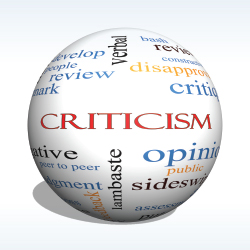 A question that I’ve wrestled with as a HR practitioner over the years, and one I am often asked about now, is what is the value of performance reviews. It’s been something that employees and managers dread in most organizations I’ve worked with. For many, the review never even happens and the employee is blindsided if things go south. For other employees, they get the review once a year and it’s a time of having the boss go over every single thing you did wrong, even though the boss never mentioned those things to you throughout the year. Either way, there is certainly room for improvement in the way employees receive feedback. Organizations today are debating whether to keep the process as it is, make an overhaul, or throw out the whole concept.
A question that I’ve wrestled with as a HR practitioner over the years, and one I am often asked about now, is what is the value of performance reviews. It’s been something that employees and managers dread in most organizations I’ve worked with. For many, the review never even happens and the employee is blindsided if things go south. For other employees, they get the review once a year and it’s a time of having the boss go over every single thing you did wrong, even though the boss never mentioned those things to you throughout the year. Either way, there is certainly room for improvement in the way employees receive feedback. Organizations today are debating whether to keep the process as it is, make an overhaul, or throw out the whole concept.
Steve Boese and I invited guest, Eric Mosley, CEO of Globoforce, to the HR Happy Hour to discuss this topic because the negativity often associated with performance reviews continues to grow world-wide. According to Eric, most employees hate having their performance reviewed and most managers hate giving them. Eric says it’s a business process that seems cast in stone, but that can change. You can check out the podcast here:
In addition to the podcast, I want to provide a list of some of the pros and cons of performance reviews. While not an all-inclusive list, these are just a few thoughts to get you thinking about the aspects that work if you use performance reviews, and what may not, so you can begin to make changes to your organization’s process and approach. Many vendors are beginning to incorporate some of the best aspects into their technology, so be sure to check out the Talent Management vendors for the latest in this area.
PROS
- Employees still desire feedback and the review process, if more frequent and positive, can inspire employees to reach greater heights in the organization.
- Feedback can help people improve their skills. Many employees like guidance from a mentor who can provide a framework for them to develop.
- Companies who can actually tie performance to pay are more trusted. Employees trust leaders when the leaders are transparent about company performance, leader performance and employee performance.
- Companies who have multiple raters give a more holistic view of the employee’s performance (Crowdsourced Review as mentioned by Eric Mosley).
CONS
- If only one rater is used, there is a lack of objectivity in the overall review. The person performing the rating can be tired, have only partial information or knowledge, can have bad motives, etc. Many factors lead to lack of objectivity.
- The myth of pay for performance is pervasive. Even companies with the best intent tend to miss the mark of actually tying pay increases and/or promotion to actual performance measures. HR technology is helping in this area.
- Managers are not always the best judge of what is needed for career development. If a manager is struggling in their own career, which many are, they are not equipped to give career advice and guidance to their staff.
- Managers have their own agendas. Organizations have their own internal politics and a manager’s agenda or standing within the organization can have drastic impact on your review (both positively and negatively).
- Managers are unprepared. Whether they claim not to have time to prepare and conduct the review or if he just doesn’t have a solid understanding of how to give feedback, the manager’s ability greatly impacts your review.
- Employees know it can be a black mark on their career. Many managers do not know the things you achieve daily or weekly. If they miss giving feedback on some of your more important work, it can make it appear that you are not doing a good job when you really are.
- For many organizations, the same form they have always used has been made available online. The form and what is measured has not been changed from an experiential standpoint.
- Managers use books and sample text instead of writing their own reviews and comments.
- Annual is not often enough. Too much time passes and the rater tends to focus on either the most negative aspects or only the most recent.
- Time spent on reviews is not showing a high ROI or actual improvement on performance.
- Reviews are often used to specifically counsel people out and provide the documentation to back up the decision.
The pros and cons of performance has been debated over the years. Just last year on the March 19 episode of The Diane Rehm Show on NPR, a discussion was led by Frank Sesno on the topic. The panel discussed the pros and cons to performance reviews in today’s workplace and the impact they have. One of the experts, Brian Kropp (managing director of the HR practice at CEB), said this, “Most of the time, it’s backward looking and negative. And, one of the things about the backward looking and negative part of it is that you’re usually getting performance feedback about things that you did three months ago, six months ago, nine months ago, 12 months ago. The applicability of that backward looking information to your performance today is actually pretty low.”
As you’ll see from my list, I was able to come up with more Cons than Pros. That’s ok because it gives us a place to start improving.
Solutions for the Future
If you’re in the position to review your organization’s approach and make changes, what are some steps to take right away? There are a few:
- Feedback needs to be reciprocal. Make sure that multiple raters are used for the employee. Additionally, give the employees the ability to rate the performance of the managers.
- Make it constructive and forward-looking. Provide training so that all managers and staff understand the goal is to be constructive, not to tear each other down.
- Make it often. Don’t just review someone once a year or never. Give feedback all the time so that the employee knows when they do something well and when something needs a bit of improvement.
What have you seen work in your organization? Be sure to share in the comments.


3 Comments
After seeing how the list of cons exceeds the pros I started to wonder if there are any benefits in providing feedback. Though it is intimidating, it points out all the negative consequences of providing feedback aimlessly. The truth is that employees need feedback because it is the indicator that their work is appreciated and at the same time they can see what they are doing wrong. So by no means should feedback be removed, but improved. If we were to balance the pros and cons, we would see that the positive things weight more than the negative.
Trish, I haven’t read an article in a while, which would cover the pros and cons of performance reviews so accurately. The thing is, I don’t think we should get rid of performance management, but it has to follow development in other areas of life, also incorporating technology. Imagine if the was no email and all business correspondence is sent by post – this is the level at which the performance review have stopped – employees have to wait weeks or months to receive feedback about something they’ve done – meanwhile the projects are getting completed, and there is no chance for improvement. Feedback should be instantaneous, bite-sized and two-way, or perhaps multi-way within teams, especially within remote teams. We should consume and provide feedback information the way we consume all information – embedded in daily processes, on mobile, via email, instantly accessible. This is the only way performance reviews can work in 2015 and beyond.
Ewa
http://engagiant.com
I agree with Ewa – feedback in today’s fast paced communications should be just as fast as other communications. It should have always been – a good manager/supervisor provides constant feedback to their employees. Performance appraisals are quite honestly a waste of time for all involved. In a good company with good managers, the normal communication provides much more useful feedback than a written appraisal, and in a bad company with mediocre managers, the appraisal is simply a matter of meeting a company requirement with the typical useless buzz words and phrases.